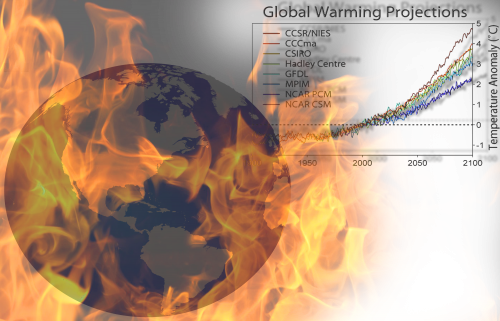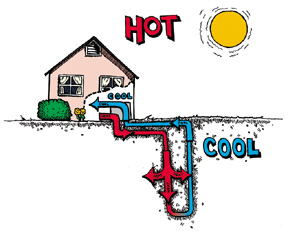
The Problem
| Conventional fossil fuel based sources of energy are both unsustainable and environmentally polluting. |
 |
How do we know this?
 |
The increased use of fossil fuels since the industrial revolution has resulted in copious emissions of greenhouse gases leading to an enhancement of the atmospheric greenhouse effect, and an attendant increase in global surface temperature. This increase in temperature termed global warming, has altered global climate resulting in anthropogenic climate change. |
Another problem:
Fossil fuels exist in limited quantities which are used up as they are consumed. As demand continues to grow, costs have soared on the international market. It is becoming progressively difficult for small island states like Jamaica to find scarce foreign currency to meet their energy bill.
Solution:
These circumstances have collectively occasioned the need for finding alternative energy sources, which are cleaner, more sustainable and (over the long-term) cheaper.
Leading alternate energy sources include, wind, solar, geothermal, ocean thermal energy conversion (OTEC), and nuclear, though there are safety concerns about the latter.
 |
 |
 |
 |
 |
How do we put the solution into practice?
There is a thriving market in Jamaica and the wider Caribbean for investments in Alternate Energy, and with that a need for experts trained in the theory and practice, including installation and maintenance of the technology.
What is the Department of Physics doing?
Recognizing this, the Department has moved to address this hiatus. In 2006 the department commenced the offering of an undergraduate programme in Physics with a major in Alternative Energy. The programme attracted a number of enthusiastic students and has graduated highly qualified professionals.
The Department has however identified that there are a number of practitioners in the industry that do not have this formal training and for a number of reasons cannot make the full time investment in the degree programme. Further, increasing domestic applications of alternate energy has heightened interest in a new audience in the public domain.
This convergence of interest led the department to offer a modular course in 2010. Given the high demand, we have revised and improved this edition in 2011 that includes an exciting advanced third module to be hosted at the Wigton Wind farm in Manchester.
